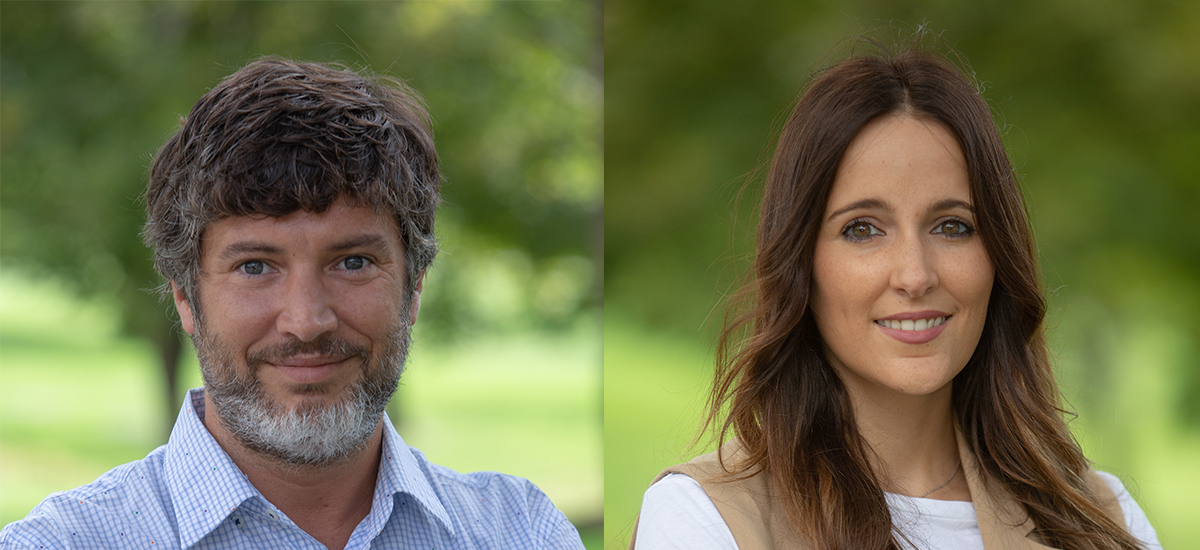Summer Course 'Social Inclusion through Sport'.
The Convention on the Rights of Persons with Disabilities calls on governments to facilitate the inclusion of persons with disabilities in sports, promote their participation at all levels by ensuring that they can practice sports on an equal footing.

21 | 06 | 2024
In its Sustainable Development Goals development , the UN also emphasizes on providing a quality and equal Education to these people. Commitments to which the Government of Navarra joins in its strategy of intelligent specialization . Taking this as a basis, the summer course 'Social inclusion through sport' of the University of Navarra, taught in person and online, seeks to delve into strategies to promote the training of professionals working in this sector. Leyre Gambra and Apolinar Varela, researchers and professors at School of Education and Psychology at the University of Navarra, and co-directors of the course, explain some of the key points that can be found in this course:
What is the goal/os that you propose in this course?
LEYRE GAMBRA (LG): The goal we intend to achieve with this summer course is to provide new resources and perspectives to define best practices and strategies when working adapted sport with people with intellectual disabilities, focusing on an ultimate goal : social inclusion. We seek to highlight the relevance of including people with intellectual disabilities in recreational sports activities, showing how sport and adapted physical activity can contribute to the social, cognitive and physical development of these people and those who live and work with them.
APOLINAR VARELA (AV): Given the lack of training associated with Adapted Physical Activity and adapted sport, we also want to create new training forums and discussion in the Community of Navarra to help those people or professionals interested in the subject to enhance their skills and interest in area.
Who is it aimed at?
LG: The course is aimed at professionals of the Education, sport and disability. Also to the staff of the centers of Education special, sports institutions, professionals of adapted physical activity, CACYF, occupational centers, pedagogues, sports federations, associations and students.
As requirements basic to access the course is to have some subject link with the Education, adapted sport or disability, either because you are a professional, student or volunteer working in this field.
Why is it important to give visibility to this topic?
AV: Despite the increase in the issue of scientific publications related to sport and adapted physical activity (APA) in people with intellectual disabilities (ID), during the last decades the information about these people and APA is still limited; therefore, the generation of knowledge about people with ID in this area and sport is crucial to make athletes with ID more visible. Encouraging the knowledge about them, can help to improve public policies linked to the promotion of AFA and sport in people with ID. On the other hand, the lack of specialized training in sport and AFA for people with ID makes it an extra value for those who wish to improve their training and competences within area.
Likewise, this forum will be an event to learn about new programs of study of research and initiatives and methodologies that are carried out with these people in the field of AFA. For example, the project 'Sport as tool of welfare and inclusion in athletes with intellectual disabilities. A study on the project Más Que Tenis' or 'Promoting social inclusion of people with intellectual disabilities through traditional sports games. The project Opportunity'. There will also be topics related to the educational and sports applications of sport for these people from the theoretical perspective and internship.
It is also interesting to note that there will be speakers of great experience and background at local, national and international level as Javier Perez Tejero, Pere Lavega, Arantxa Meca, Juantxo Fuertes or Jordi Celaya.
What will people who register find?
LG: We have raised the partnership between professionals from different spheres and the inclusion of people with disabilities in this training because they are essential to move forward, emphasizing the importance of listening, valuing and improving the experiences in this field.
Each speaker will offer a approach from different perspectives related to the challenges of the world of sport and
challenges in the world of sport and disability, urging action and reminding us that every step taken is a step towards a more
taken is a step towards a more inclusive world. This course will delve into the different dimensions of adapted physical activity, offering resources, information and experiences to enrich the research and internship in the field of sport and adapted physical activity for people with intellectual disabilities.
In the course, we will explore the basic and theoretical principles that underpin the internship of sport and physical activity adapted for people with intellectual disabilities, including aspects related to health, inclusion and well-being, as well as some of the innovative strategies and methodologies for the design and adaptation of educational and sports programs for these people; and we will share experiences and best practices.




